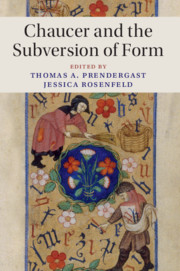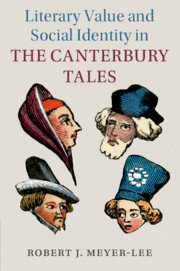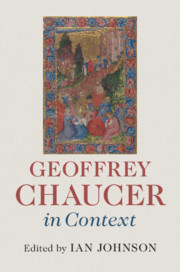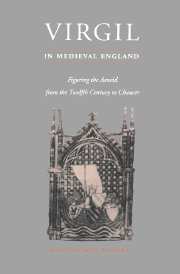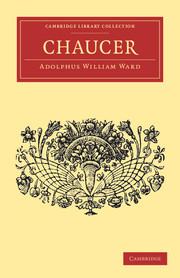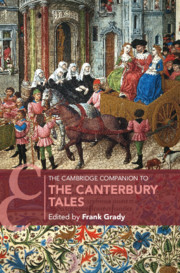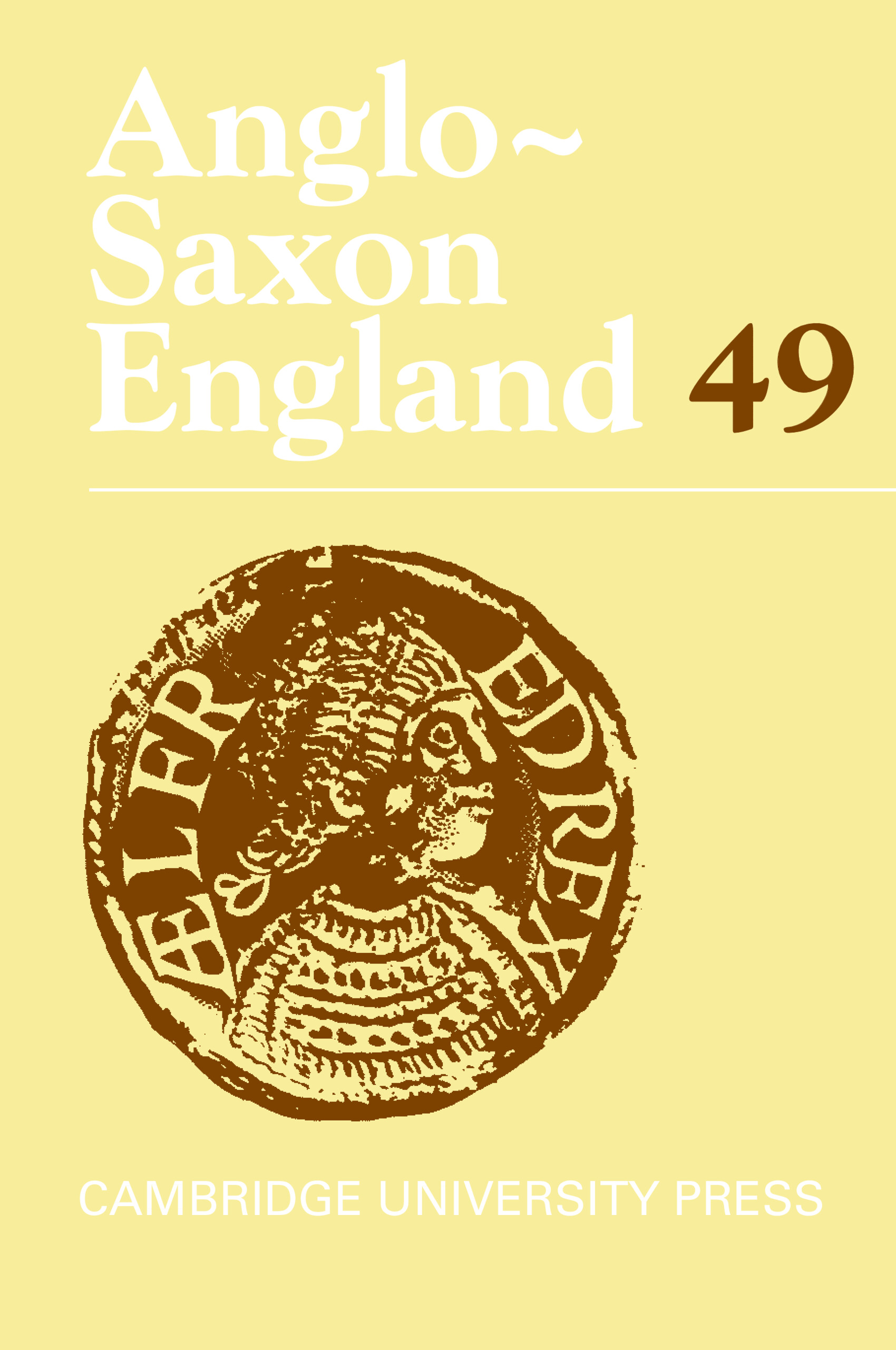Chaucer and the Subversion of Form
$41.99 (C)
Part of Cambridge Studies in Medieval Literature
- Editors:
- Thomas A. Prendergast, College of Wooster, Ohio
- Jessica Rosenfeld, Washington University, St Louis
- Date Published: April 2021
- availability: Available
- format: Paperback
- isbn: 9781316644126
$
41.99
(C)
Paperback
Other available formats:
Hardback, eBook
Looking for an examination copy?
If you are interested in the title for your course we can consider offering an examination copy. To register your interest please contact [email protected] providing details of the course you are teaching.
-
Responding to the lively resurgence of literary formalism, this volume delivers a timely and fresh exploration of the works of Geoffrey Chaucer. Advancing 'new formalist' approaches, medieval scholars have begun to ask what happens when structure fails to yield meaning, probing the very limits of poetic organization. While Chaucer is acknowledged as a master of form, his work also foregrounds troubling questions about formal agency: the disparate forces of narrative and poetic practice, readerly reception, intertextuality, genre, scribal attention, patronage, and historical change. This definitive collection of essays offers diverse perspectives on Chaucer and a varied analysis of these problems, asking what happens when form is resisted by author or reader, when it fails by accident or by design, and how it can be misleading, errant, or even dangerous.
Read more- Presents a fresh and definitive study of literary form in the works of Geoffrey Chaucer
- Brings 'new formalist' approaches to bear on a range of Chaucer's works
- Brings a focus to Chaucerian moments of formal disorder and disruption, mistakes and problems
Reviews & endorsements
'… original critical engagement with a range of Chaucer’s works and the issues they raise.' A. S. G. Edwards, The Times Literary Supplement
See more reviews'... this collection will be warmly received by scholars working on Chaucer, medieval conceptions of form and the literary, and - perhaps especially - the intersection of medieval philosophy and literature. Medievalists interested in the state of New Formalist criticism at present will also want a copy of this handsome volume, as will those curious about how far a formally oriented medieval studies might take us in the future.' Taylor Cowdery, Studies in the Age of Chaucer
‘This brilliant and challenging collection of essays shows that form is not static but in itself a principle of animation that requires us to rethink not only how but also why we read literature.’ Elizabeth Robertson, Studies in Medieval and Renaissance Teaching (SMART)
Customer reviews
Not yet reviewed
Be the first to review
Review was not posted due to profanity
×Product details
- Date Published: April 2021
- format: Paperback
- isbn: 9781316644126
- length: 240 pages
- dimensions: 227 x 150 x 13 mm
- weight: 0.37kg
- availability: Available
Table of Contents
Introduction: failure, figure, reception Thomas A. Prendergast and Jessica Rosenfeld
Part I. The Failures of Form:
1. 'Many a lay and many a thing': Chaucer's technical terms Jenni Nuttall
2. Chaucer's aesthetic resources: nature, longing, and economies of form Jennifer Jahner
3. Against order: medieval, modern, and contemporary critiques of causality Eleanor Johnson
Part II. The Corporeality and Form:
4. Diverging forms: disability and the Monk's Tales Jonathan Hsy
5. Figures for 'Gretter knowing': forms in the Treatise on the Astrolabe Lisa H. Cooper
6. The heaviness of prosopoeial form in Chaucer's Book of the Duchess Julie Orlemanski
Part III. The Forms of Reception:
7. Reading badly: what the Physician's Tale isn't telling us Thomas A. Prendergast
8. Birdsong, love, and the House of Lancaster: Gower reforms Chaucer Arthur Bahr
9. Opening The Canterbury Tales: form and formalism in the general prologue Stephanie Trigg.
Sorry, this resource is locked
Please register or sign in to request access. If you are having problems accessing these resources please email [email protected]
Register Sign in» Proceed
You are now leaving the Cambridge University Press website. Your eBook purchase and download will be completed by our partner www.ebooks.com. Please see the permission section of the www.ebooks.com catalogue page for details of the print & copy limits on our eBooks.
Continue ×Are you sure you want to delete your account?
This cannot be undone.
Thank you for your feedback which will help us improve our service.
If you requested a response, we will make sure to get back to you shortly.
×
